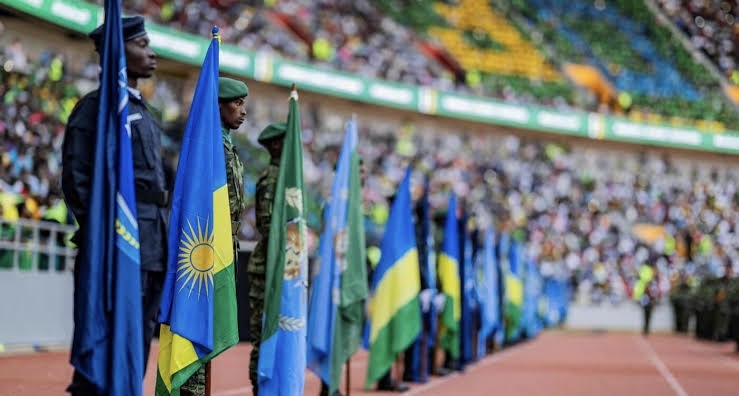
On Saturday, the Rwanda High Commission in Nigeria in Abuja celebrated the 30th anniversary of its liberation, known as Kwibohora 30.
The celebration marked a significant moment in Rwanda’s history, symbolising the end of genocide and the defeat of the oppressive regime that orchestrated it on July 4, 1994.

While Rwanda has made remarkable progress in these areas, the journey towards building a prosperous and unified nation is still ongoing.
Christophe Bazivamo, Rwanda’s High Commissioner to Nigeria, reflected on the challenges Rwanda faced after gaining independence on July 1, 1962.
“While we acknowledge our independence day on July 1, Kwibohora, July 4 holds a deeper significance for Rwandans as it marks the day we reclaimed our nation, our dignity and our right to chart our own path.
“We honour the resilience of the Rwandan people and the bravery of the Rwandan Patriotic Army, highlighting their sacrifices in the struggle for freedom and peace. We express gratitude to those who fought for Rwanda’s liberation and honoured the heroes who laid down their lives for a free and united Rwanda,” he said.
The ambassador also added that true liberation involves healing, reconciliation and rebuilding.
“Rwanda’s innovative approach to justice, including initiatives like the Gacaca courts and the “Ndi Umunyarwanda” programme, has played a crucial role in healing the wounds of the past and fostering national unity.
“Today, Rwanda stands stronger and more united than ever before. Significant progress has been made in reducing poverty, expanding access to healthcare and education, and empowering women. With an impressive annual economic growth rate of 7 per cent, Rwanda has emerged as a key investment destination in Africa.
“We want to invite individuals to #VisitRwanda through #RwandAir to explore the country’s natural beauty, diverse wildlife and vibrant culture.
“For investors, Rwanda offers a supportive business environment and a government committed to facilitating growth and development,” he added.
Furthermore, the ambassador acknowledged the valuable collaborations with nations like Nigeria that had contributed to Rwanda’s progress. He expressed gratitude for the partnerships that had supported Rwanda’s development and emphasised the importance of strengthening those relationships for mutual benefit.
Nigeria’s foreign affairs minister Yusuf Tuggar commended the people of Rwanda on their liberation, growth and achievements over the past three decades.
Mr Tuggar, represented by Safiu Olaniyan, reaffirmed Nigeria’s commitment to enhancing cooperation with Rwanda and strengthening bilateral ties between the two countries.
(NAN)


